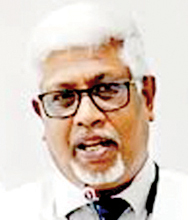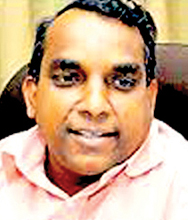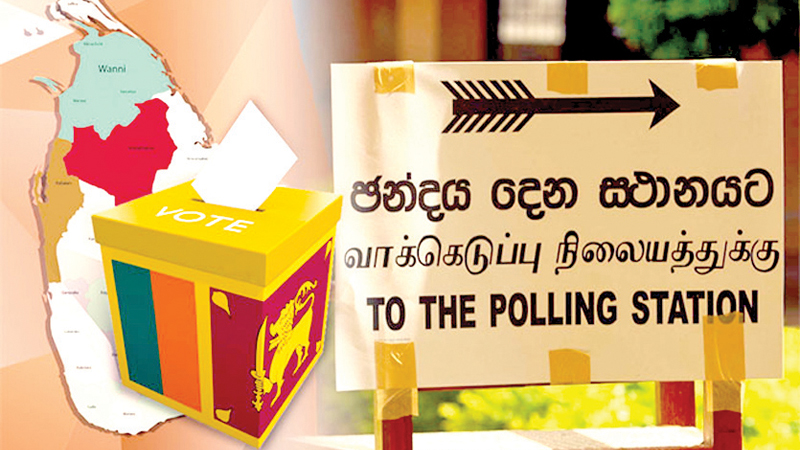 The nominations for the general election 2024 concluded last Friday, revealing interesting and pragmatic changes in the candidate lists from nearly every political party. Over the past decade, the citizens of Sri Lanka have been calling for meaningful reforms in a political system plagued by corruption, nepotism, and clientelism.
The nominations for the general election 2024 concluded last Friday, revealing interesting and pragmatic changes in the candidate lists from nearly every political party. Over the past decade, the citizens of Sri Lanka have been calling for meaningful reforms in a political system plagued by corruption, nepotism, and clientelism.

Saman Rathnayake
Despite initial hopes for change after the 2015 regime shift and promises of Good Governance, poor political decisions and bureaucratic issues led to the coalition’s failure, resulting in increased suffering and fear among citizens, especially following the Easter Sunday massacre, which shifted the focus of governance back to national security.
In 2022, the two-thirds majority of Gotabaya Rajapaksa’s Government came to a disastrous end, plunging the entire nation into bankruptcy. The anger and frustration among the people led to the Aragalaya, which resulted in a significant shift in power during the recent Presidential election, with the National People’s Power (NPP) increasing its voter base from three percent to 42 percent, making history.
One of the main slogans during the Aragalaya was ‘No to 225’ (225 ma Epa), reflecting the public’s frustration with the apathy and irresponsible ambition of lawmakers, who prioritised their own well-being over that of society, along with corrupt practices and a lack of accountability.
New faces

Rohana Hettiarachchi
As a result, it is evident that a significant number of new faces will appear in the new Parliament, which is scheduled to convene on November 21, following the general elections. The Election Commission has reported that 690 groups will contest the upcoming general election across 22 districts, with 74 nominations having been rejected.
Commissioner General of Elections Saman Sri Rathnayake told a press conference on Friday that the rejected nominees have the right to appeal through the courts, as stipulated by the Parliament Act of 1981, specifically Section No. 1, sentence 15.
He emphasized the Commission’s role in executing these regulations and added that if any political party has concerns regarding this law, the court has the authority to interpret it. Therefore, those who feel they have been wronged by the Commission’s decisions can seek assistance from the court. He also emphasized the fact that “it is not acceptable to make complaints on social media or any other media without first taking the necessary legal steps, nor to issue statements that call into question the duties of the Election Commission.”
It has been reported that many long standing parliamentarians will not be candidates at the 2024 general elections, including Bandula Gunawardhana, Gamini Lokuge, Mahinda Rajapaksa, Chamal Rajapaksa, Basil Rajapaksa, Ranil Wickremesinghe, Akhila Viraj Kariyawasam, Wimal Weerawansa, Dullas Alahapperuma, Shehan Semasinghe, S.B. Disanayake, Lakshman Kiriella, Navin Disanayake, Patali Ranawaka, Mahinda Yapa Abeywardena, Maithripala Sirisena, W.D.J Seneviratne, Sarath Fonseka, Janaka Bandara Tennakoon, Karu Paranavithana, Shan Vijayalal de Silva, C.V. Vigneshwaran, Vasudeva Nanayakkara, Gevindu Kumarathunga, Mayantha Disanayake, Prasanna Ranathunga and a few more.
People’s responsibility
While this certainly indicates a significant change in the future political culture of the country, it is the responsibility of the people to choose the right candidates for parliament as lawmakers. As citizens, it is crucial to understand the importance of selecting candidates based on their ability to serve the public, rather than for personal, short-term gains such as MPs attending funerals, weddings, and other personal celebrations, or providing subsidies and securing tenders for their constituents.
We elect them to Parliament to create laws and regulations that benefit all citizens, which is their primary duty as members. As responsible citizens, we should encourage them to enact laws that promote equality and equity in society, ensuring equal opportunities for everyone and improving the conditions of the entire community, rather than merely serving the interests of a specific group, their voter base, or their patrons.
The March 12 Movement, which consists of election monitoring groups and civil society organisations, has been continuously advocating for the improvement of the quality of candidates nominated by political parties for the past decade. Also, the Movement aims to elevate the awareness and understanding of the general public so they can make informed choices when casting their votes. The March 12 Movement has presented several key criteria for political parties to consider when nominating candidates, as well as for the public when voting for those candidates.
Candidates must be practical individuals with a sensitivity to the entire community, possessing both a global vision and local understanding, capable of making laws, developing policies, and managing finances.
They should not have been imprisoned or suspended for criminal activities and must demonstrate good character without any history of bribery or corruption.
Careful consideration should also be given to individuals who have been accused of bribery or corruption or who operate businesses harmful to the well-being of the country, such as those related to alcohol, drugs, casinos or prostitution.
Candidates should not have engaged in environmentally harmful activities that destroy vital ecosystems or entered into financial agreements detrimental to the country before becoming public representatives.
Action should be taken to ensure sufficient opportunities for women and youth representation.
Political parties should refrain from nominating religious leaders, as they should maintain respect from all members of society, regardless of political affiliation.
Co-convenor of the March 12 Movement and executive director of PAFFREL (People’s Action for Free and Fair Elections) Rohana Hettiachchi said, “Considering the significant changes clearly visible in the nomination lists of each party for the upcoming general election, we, as the March 12 Movement, are pleased that our commitment to building a clean Parliament with sensible and responsible lawmakers dedicated to serving the country and its people is becoming a reality, at least to some extent. We are very excited to see new faces from all parties, and while there will undoubtedly be shortcomings, many candidates will have less experience or no experience at all, we are optimistic that their genuine commitment and passion will lead to a drastic positive change in the political culture of the country.”









